- Home
- Graham McNeill
Vengeful Spirit
Vengeful Spirit Read online
Table of Contents
Cover
Title Page
Dramatis Personae
Part One
One
Two
Three
Four
Five
Six
Seven
Eight
Nine
Ten
Part Two
Eleven
Twelve
Thirteen
Fourteen
Fifteen
Sixteen
Seventeen
Eighteen
Nineteen
Part Three
Twenty
Twenty-One
Twenty-Two
Twenty-Three
Twenty-Four
Twenty-Five
Afterword
About The Author
Legal
eBook license
It is a time of legend.
The galaxy is in flames. The Emperor’s glorious vision for humanity is in ruins. His favoured son, Horus, has turned from his father’s light and embraced Chaos.
His armies, the mighty and redoubtable Space Marines, are locked in a brutal civil war. Once, these ultimate warriors fought side by side as brothers, protecting the galaxy and bringing mankind back into the Emperor’s light. Now they are divided.
Some remain loyal to the Emperor, whilst others have sided with the Warmaster. Pre-eminent amongst them, the leaders of their thousands-strong Legions are the primarchs. Magnificent, superhuman beings, they are the crowning achievement of the Emperor’s genetic science. Thrust into battle against one another, victory is uncertain for either side.
Worlds are burning. At Isstvan V, Horus dealt a vicious blow and three loyal Legions were all but destroyed. War was begun, a conflict that will engulf all mankind in fire. Treachery and betrayal have usurped honour and nobility. Assassins lurk in every shadow. Armies are gathering. All must choose a side or die.
Horus musters his armada, Terra itself the object of his wrath. Seated upon the Golden Throne, the Emperor waits for his wayward son to return. But his true enemy is Chaos, a primordial force that seeks to enslave mankind to its capricious whims.
The screams of the innocent, the pleas of the righteous resound to the cruel laughter of Dark Gods. Suffering and damnation await all should the Emperor fail and the war be lost.
The age of knowledge and enlightenment has ended. The Age of Darkness has begun.
~ DRAMATIS PERSONAE ~
The Primarchs
Horus Lupercal, The Warmaster, Primarch of the XVI Legion
Mortarion, The Death Lord, Primarch of the XIV Legion
Fulgrim, The Phoenician, Primarch of the III Legion
Leman Russ, The Wolf King, Primarch of the VI Legion
Rogal Dorn, The Emperor’s Praetorian, Primarch of the VII Legion
The XVI Legion ‘Sons of Horus’
Ezekyle Abaddon, First Captain
Falkus Kibre, ‘Widowmaker’, captain, Justaerin Terminator Squad
Kalus Ekaddon, Captain, Catulan Reaver Squad
‘Little’ Horus Aximand, Captain, Fifth Company
Yade Durso, Line captain, Fifth Company
Serghar Targost, Captain, Seventh Company, lodge master
Lev Goshen, Captain, 25th Company
Grael Noctua, ‘The Warlocked’, sergeant, 25th Company
Maloghurst, ‘The Twisted’, equerry to the primarch
Ger Gerradon, Luperci
The XIV Legion ‘Death Guard’
Caipha Morarg, 24th Breacher Squad, Second Company
Ignatius Grulgor, The Eater of Lives
The XIII Legion ‘Ultramarines’, Battle Group II (25th Chapter)
Castor Alcade, Legate
Didacus Theron, Centurion, Fourth Division
Proximo Tarchon, Centurion, Ninth Division
Arcadon Kyro, Techmarine
The IX Legion ‘Blood Angels’
Vitus Salicar, Captain, 16th Company
Alix Vastern, Apothecary
Drazen Acorah, Appointed lieutenant, formerly of the Librarius
Agana Serkan, Warden
Legio Crucius
Etana Kalonice, Princeps, Paragon of Terra
Carthal Ashur, Calator Martialis
Legio Fortidus
Uta-Dagon, Princeps, Red Vengeance
Utu-Lerna, Princeps, Bloodgeld
Ur-Nammu, Warmonger
Legio Gryphonicus
Opinicus, Invocatio
The Mechanicum
Bellona Modwen, High Magos, Ordo Reductor
House Devine
Cyprian Devine, ‘The Hellblade’, Knight Seneschal
Cebella Devine, Adoratrice Drakaina
Raeven Devine, First Knight
Albard Devine, Firstborn scion
Lyx Devine, Adoratrice Sybaris
House of Donar
Balmorn Donar, Lord-Knight
Robard Donar, Scion
Imperial Personae
Malcador the Sigillite, Imperial Regent, First Lord of Terra
Brython Semper, Lord Admiral of Battlefleet Molech
Tyana Kourion, Lord General of the Grand Army of Molech
Edoraki Hakon, Marshal of the Northern Oceanic
Abdi Kheda, Commander of the Kushite Eastings
Oskur van Valkenberg, Colonel of the Western Marches
Corwen Malbek, Khan of the Southern Steppe
Noama Calver, Medicae corps
Alivia Sureka, Larsa harbour pilot
Jeph Parsons, Dock worker
Miska
Vivyen
The Chosen of Malcador
Garviel Loken, Knight Errant
Iacton Qruze, ‘The Half-heard’, Knight Errant
Severian, Knight Errant
Tylos Rubio, Knight Errant
Macer Varren, Knight Errant
Bror Tyrfingr, Knight Errant
Rama Karayan, Knight Errant
Ares Voitek, Knight Errant
Altan Nohai, Knight Errant
Callion Zaven, Knight Errant
Tubal Cayne, Knight Errant
Banu Rassuah, Pilot of the Tarnhelm
Non-Imperial Personae
The Red Angel
‘And therefore is the glorious planet Sol
In noble eminence enthroned and sphered
Amidst the other; whose medicinable Eye
Corrects the ill-aspects of planets evil,
And posts, like the commandment of a king,
Sans check to good and bad: but when the planets
In evil mixture to disorder wander,
What plagues and what portents! what mutiny!
What raging of the sea! shaking of earth!
Commotion in the winds! frights, changes, horrors,
Divert and crack, rend and deracinate
The unity and married calm of states
Quite from their fixtures!’
– attributed to the dramaturge Shakespire (fl. M2),
cited in The Prophecy of Amon of the Thousand Sons
(Chapter III, Verse 13)
‘Horus had called the dark and savage furies latent in the most ruthless, contradictory and ill-starred power of the Immaterium. He had conjured up the fearful idol of an all-devouring Molech of which he was the priest and incarnation. All his powers, hitherto dissipated and scattered, were now concentrated and directed with terrible energy to one terrible aim.’
– from The Age of Revolution: Suppressed Monographs
of Choirmaster Nemo Zhi Meng
‘The line separating good from evil runs not between species, not between ranks and not between competing faiths. It runs through the heart of each and every mortal soul. This line is not stationary, but shifts and move
s with the passage of time. Even souls ensnared by evil maintain a small bridgehead of good.’
– The Keeler Amanuensis
(Volume II, Chapter XXXIV, Verse VII)
Where are the tombs of dead gods? What wailing mourner pours wine over their grave-mounds? There was a time when a being known as Zeus was the king of all the gods, and any man who doubted his might and majesty was a heathen and an enemy. But where in all the Imperium is there the man who worships Zeus?
And what of Huitzilopochtli? Forty thousand maidens were slain in sacrifice to him, their dripping hearts burned in vast pyramid temples. When he frowned, the sun stood still, when he raged earthquakes destroyed entire cities, when he thirsted he was watered with oceans of blood.
But today Huitzilopochtli is magnificently forgotten.
And what of his brother, Tezcatilpoca?
The ancients believed that Tezcatilpoca was almost as powerful as his brother. He consumed the hearts of almost thirty thousand virgins a year, but does anyone guard his tomb or know where it is to be found? Does anyone weep or hang mourning wreaths upon his graven image?
And what of Balor of the Eye, or the Lady of Cythera? Or of Dis, whom the Romanii Qaysar found to be the chief god of the Keltos? Or the dreaming serpent, Kajura? Of Taranis, only dimly recalled by a dead order of Knights and early historians of Unity? Or the flesh-hungry King Nzambi? Or the serpentine hosts of Cromm Crúaich, driven from their island lair by the Priest of Ravenglass?
Where are their bones? Where is the tree of woe upon which to hang memorial garlands? In what forgotten abode of oblivion do they await their hour of resurrection?
They are not alone in eternity, for the tombs of dead gods are crowded. Urusix is there, and Esus, and Baldur, and Silvana, and Mithras, and Phoenicia, and Deva, and Kratus, and Uxellimus, and Borvo, and Grannos, and Mogons. All mighty gods in their day, worshipped by billions, replete with demands and commandments, ascribed the power to bind the elements and shake the foundations of the world.
Civilisations laboured for generations to build vast temples to them; towering structures of stone and steel, fashioned by technologies now lost in the unknowing of Old Night. Interpreting their divine desires fell to thousands of holy men; lunatic priests, dung-smeared shamans and opium-ravaged oracles. To doubt their pronouncements was to die in agony. Great armies took to the field to defend the gods against infidels and carry their will to heathen peoples in far off lands. Continents were burned, innocents butchered and worlds laid waste in their name. Yet in the end they all withered and died, cast down and justly unremembered. Today there are few so deranged as to do them reverence.
All were gods of the highest eminence, many of them mentioned with fear and trembling awe in the ancient texts of the White God. They ranked with the Highest Power; yet time has trampled them all underfoot and mocks the ashes of their bones.
They were gods of the highest dignity – gods of civilised peoples – worshipped by entire worlds. All were omnipotent, omniscient and immortal.
And all are dead.
If any of them ever really existed, they were but aspects of the true Pantheon, masks behind which hide the first gods of the universe in all their terrible beauty.
Lorgar has been vociferous in his proselytising of this fact, wearily so.
But he does not know as much as he believes.
Imperial Truth? Primordial Truth?
Both are irrelevant.
There is a god who has raised Himself higher than all the others, mightier than any imagined deity or hell-spawned monster dreamed into being.
He is the Emperor.
My father.
And I have to kill Him.
That is the only Truth that matters.
ONE
The Mausolytica
Confraternity
Brothers
The dead of Dwell were screaming. The Mausolytic Precinct was a place of terror for them now, where the cessation of mortal functions offered no respite from continual torment. A thousand tech-adepts died by the sword before enough had finally been compelled to repair the damage done in the wake of the Sons of Horus’s assault, but repair it they had.
The dead of the Mausolytic screamed from dawn till dusk, through the night and across every day since Aximand had captured it in the name of the Warmaster. They screamed in fear, in horror and revulsion.
But most of all they screamed in anger.
Only the Warmaster heard them, and he cared nothing for their anger. His only interest was in what they could tell him of the past; as they had experienced it and as they had learned it.
A vaulted sprawl of colonnaded stone structures that possessed the same scale as the palace of a mighty Terran patrician, was here a repository of the dead and librarium in one. Plain facades of ochre granite shone like burnished copper in the dying sunlight, and the cries of circling seabirds almost made Horus Aximand forget a war had been fought here.
Could almost make him forget that he nearly died here.
The battle for the Mausolytic Precinct had been won by bloody, shoulder-charging bodywork, blade to blade, muscle to muscle. There had been collateral damage of course; machinery destroyed, stasis capsules smashed open and preserved flesh turned to hard leather upon exposure to the unforgiving atmospherics.
Blood still stained its walls in the catastrophic spray patterns of bodies detonated within ruptured personal shields. The ruined corpses of the Compulsories were gone, but no one cared enough to wash away their blood.
Aximand stood at a knee-high wall of sun-blushed stone, one foot on the parapet, forearms resting on his raised knee. The sound of waves far below was peaceful and when the wind blew in from the ocean, the burned metal smell of the port was replaced with the tang of salt and wildflowers. From his vantage point upon the high plateau, the tumbled city of Tyjun was much as it had been when the Sons of Horus made their first landings.
His first impression was that a vast tidal surge had swept along the rift valley and deposited the forgotten detritus of an ocean upon its retreat. There appeared to be no order to the city, but Aximand had long since come to appreciate the organic subtleties of the city’s ancient designers.
‘It is protean,’ he would say, when he found a willing ear, ‘a city that thrives on its disregard for clean lines and imposed clarity. The ostensive lack of cohesion is deceptive, for order exists within the chaos, which only becomes apparent when you walk its twisting paths and find that your destination has been set from the very beginning.’
Every building was unique in its own way, as though an army of architects had come to Tyjun and each designed a wealth of structures from the salvaged steel and glass and stone.
The only exception was the Dwellan Palace, a recent addition to the city that bore the utilitarian hallmarks of classical Macraggian architecture. Taller than anything else in Tyjun, it was a domed palace of Imperial governance, a monument to the Great Crusade and an expression of Primarch Guilliman’s vanity all in one. It had mathematically precise proportions and though Lupercal thought it austere, Aximand liked the restraint he saw in its elegantly crisp design.
Exquisite statuary of Imperial heroes stood proud around the circumference of the main azure dome and in recessed alcoves running the full height of the central arch. Aximand had learned the identity of every one before they were smashed; Chapter Masters and captains of the Ultramarines and Iron Hands, Army generals, Titan princeps, Munitorum pontiffs and even a few aexactor tithe-takers.
Evening sunlight honeyed the city’s rooftops and the Sea of Enna was glassy and still. The water became a golden mirror streaked with phosphor-bright reflections of orbiting warships, the occasional moon and void-war debris falling far out to sea.
The prow of a sunken cargo tanker jutted from the water at the quayside, petrochemical gels frothing its surface with oily scum.
Far to the north, a glowing star clung stubbornly to the horizon, the twin of the sun setting in the south. This, Aximand knew, was
no star, but the still burning remains of the Budayan ship school, its orbit degrading with each planetary revolution.
‘Won’t be long until that impacts,’ said a voice behind him.
‘True,’ agreed Aximand without turning.
‘It’s not going to be pretty,’ said another. ‘Best we’re gone before then.’
‘We should have left here long ago,’ added a fourth.
Aximand finally turned from the bucolic vision of Tyjun and nodded to his battle-brothers.
‘Mournival,’ he said. ‘The Warmaster calls for us.’
The Mournival. Restored. But then, it had never been lost, just broken awhile.
Aximand marched with Ezekyle Abaddon. In his spiked warrior-plate, the First Captain of the Sons of Horus was more than a head taller than Aximand. His body language was savagely aggressive, cruelly planed features pulled hard over jutting bones. His skull was hairless, save for a glossy black topknot jutting from his crown like a tribal fetish.
He and Abaddon were old hands, Mournival from the time before the galaxy had slipped a gear and turned to a very different hand at the crank. They had spilled blood on a hundred worlds in the name of the Emperor; hundreds more for the Warmaster.
And they had once laughed as they fought.
The two newest members of the Mournival marched alongside their proposers, lunar marks graven upon their helms by the reflected light of Dwell’s moon. One was a warrior with a reputation, the other a sergeant who’d earned his during the disaster of Dwell’s fall.
Widowmaker Kibre commanded the Justaerin Terminators. One of Abaddon’s men and a true son. Where Kibre was seasoned and war-known, Grael Noctua of the Warlocked was new to the men of the Legion. A warrior possessed of a mind like a steel trap, his intellect was likened by Abaddon to a slow blade.
With Kibre’s investiture, a potent weight of choler lay to one side of the Mournival. Aximand hoped Noctua’s phlegmatic presence would counterbalance it. There had been rumblings at the favour Aximand showed Noctua, but Dwell silenced them all.
With their two newest brothers, Aximand and Abaddon led the way to the central Mausolytic Hall in answer to the Warmaster’s summons.
‘Do you think it will be a mobilisation order?’ asked Noctua.

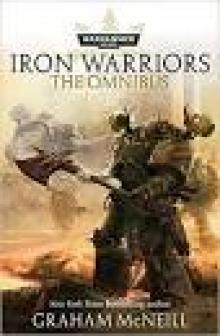 Iron Warriors - The Omnibus
Iron Warriors - The Omnibus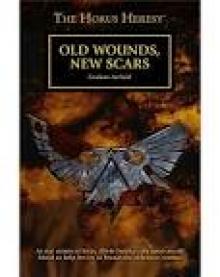 Old Wounds, New Scars
Old Wounds, New Scars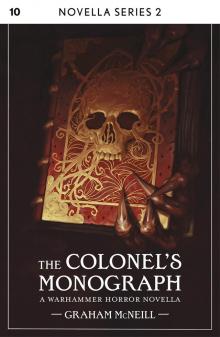 The Colonel's Monograph
The Colonel's Monograph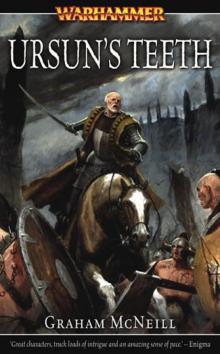 Ursuns Teeth
Ursuns Teeth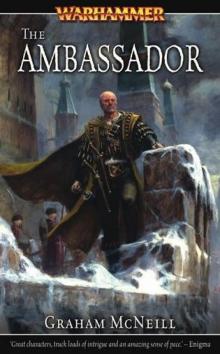 The Ambassador
The Ambassador![[Ultramarines 5] Courage and Honour - Graham McNeill Read online](http://i1.bookreadfree.com/i/03/12/[ultramarines_5]_courage_and_honour_-_graham_mcneill_preview.jpg) [Ultramarines 5] Courage and Honour - Graham McNeill
[Ultramarines 5] Courage and Honour - Graham McNeill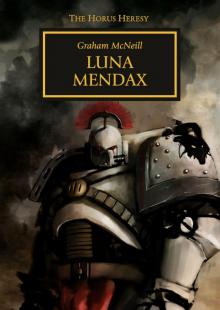 28a Luna Mendax
28a Luna Mendax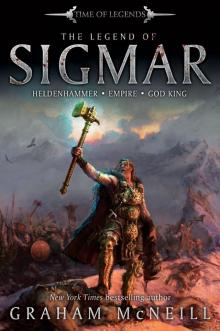 The Legend of Sigmar
The Legend of Sigmar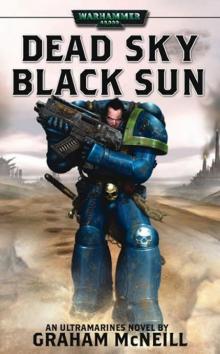 Warhammer - Ultramarines 03 - Dead Sky, Black Sun (McNeill, Graham)
Warhammer - Ultramarines 03 - Dead Sky, Black Sun (McNeill, Graham)![Warhammer - [The Ambassador Chronicles 01] - The Ambassador Read online](http://i1.bookreadfree.com/i/03/17/warhammer_-_[the_ambassador_chronicles_01]_-_the_ambassador_preview.jpg) Warhammer - [The Ambassador Chronicles 01] - The Ambassador
Warhammer - [The Ambassador Chronicles 01] - The Ambassador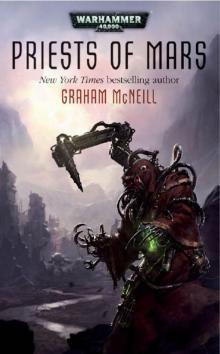 Priests of Mars
Priests of Mars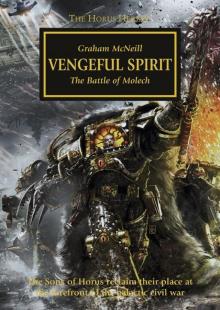 Vengeful Spirit
Vengeful Spirit![[Sigmar 03] - God King Read online](http://i1.bookreadfree.com/i/03/13/[sigmar_03]_-_god_king_preview.jpg) [Sigmar 03] - God King
[Sigmar 03] - God King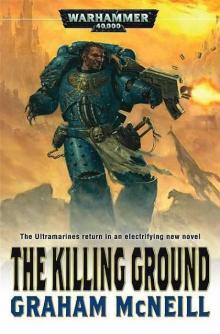 The Killing Ground
The Killing Ground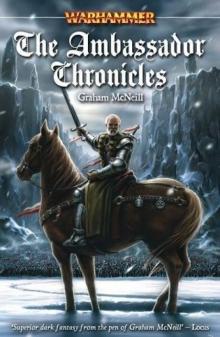 The Ambassador Chronicles
The Ambassador Chronicles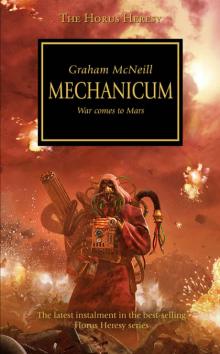 Mechanicum
Mechanicum![[Ulthuan 02] - Sons of Ellyrion Read online](http://i1.bookreadfree.com/i/03/14/[ulthuan_02]_-_sons_of_ellyrion_preview.jpg) [Ulthuan 02] - Sons of Ellyrion
[Ulthuan 02] - Sons of Ellyrion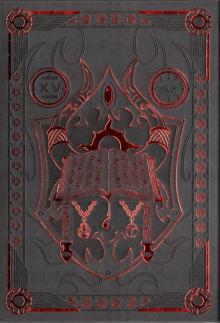 Magnus the Red: Master of Prospero
Magnus the Red: Master of Prospero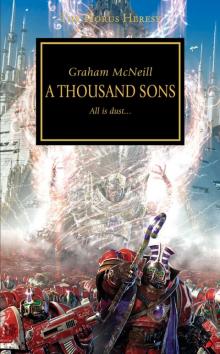 A Thousand Sons
A Thousand Sons![[Warhammer] - Guardians of the Forest Read online](http://i1.bookreadfree.com/i/03/18/[warhammer]_-_guardians_of_the_forest_preview.jpg) [Warhammer] - Guardians of the Forest
[Warhammer] - Guardians of the Forest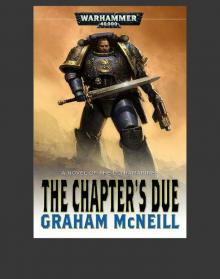 The Chapters Due
The Chapters Due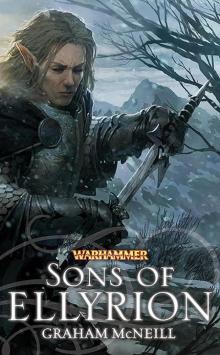 02 - Sons of Ellyrion
02 - Sons of Ellyrion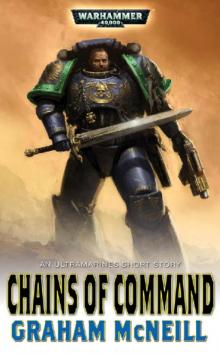 Chains Of Command
Chains Of Command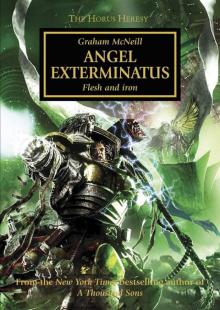 Angel Exterminatus
Angel Exterminatus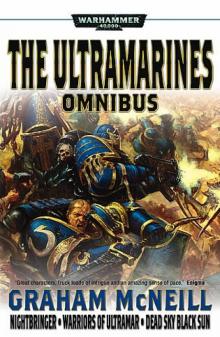 The Ultramarines Omnibus
The Ultramarines Omnibus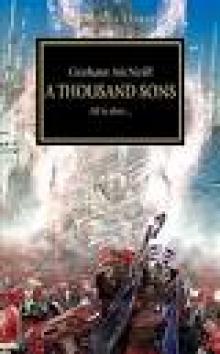 X Marks da Spot
X Marks da Spot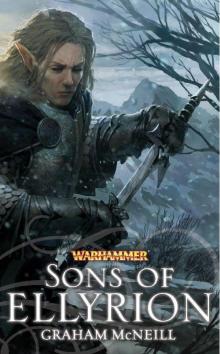 Sons of Ellyrion
Sons of Ellyrion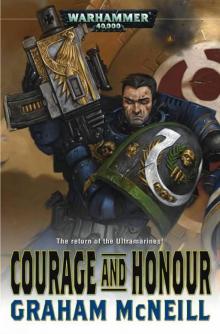 Courage And Honour
Courage And Honour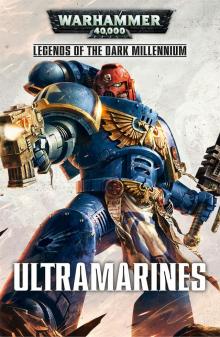 Ultramarines
Ultramarines![[Ulthuan 01] - Defenders of Ulthuan Read online](http://i1.bookreadfree.com/i/03/16/[ulthuan_01]_-_defenders_of_ulthuan_preview.jpg) [Ulthuan 01] - Defenders of Ulthuan
[Ulthuan 01] - Defenders of Ulthuan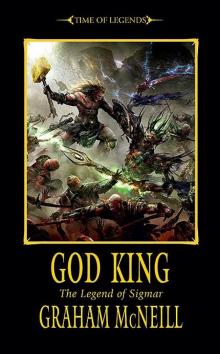 03 - God King
03 - God King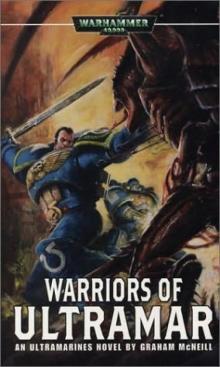 Warhammer - Ultramarines 02 - Warriors Of Ultramar (McNeill, Graham)
Warhammer - Ultramarines 02 - Warriors Of Ultramar (McNeill, Graham)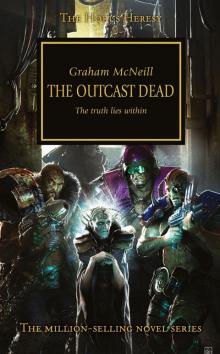 The Outcast Dead
The Outcast Dead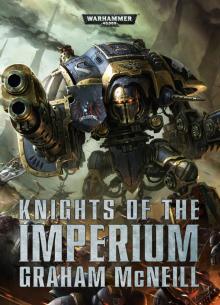 Knights of the Imperium
Knights of the Imperium Defenders of Ulthuan
Defenders of Ulthuan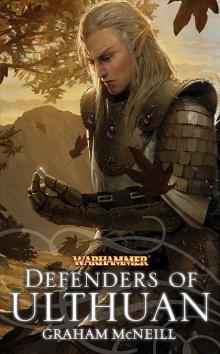 01 - Defenders of Ulthuan
01 - Defenders of Ulthuan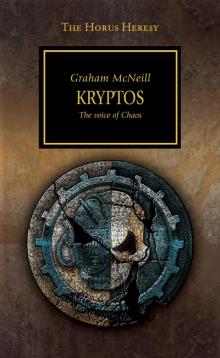 Kryptos
Kryptos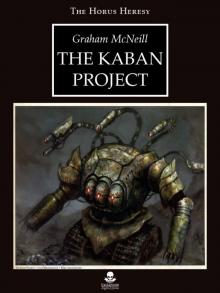 The Kaban Project
The Kaban Project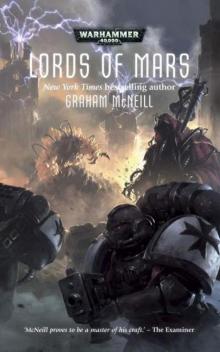 Lords of Mars
Lords of Mars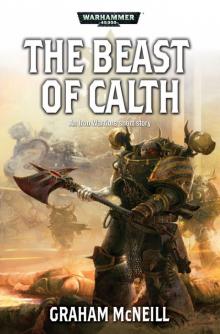 The Beast of Calth
The Beast of Calth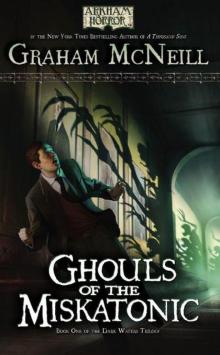 Ghouls of the Miskatonic (The Dark Waters Trilogy)
Ghouls of the Miskatonic (The Dark Waters Trilogy)![[Sigmar 01] - Heldenhammer Read online](http://i1.bookreadfree.com/i/03/24/[sigmar_01]_-_heldenhammer_preview.jpg) [Sigmar 01] - Heldenhammer
[Sigmar 01] - Heldenhammer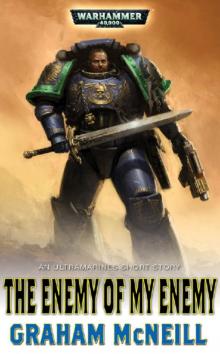 The Enemy Of My Enemy
The Enemy Of My Enemy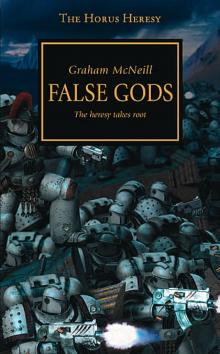 False Gods
False Gods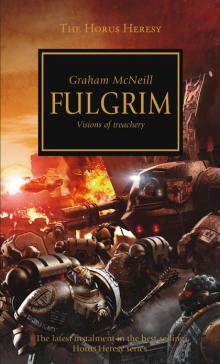 Fulgrim
Fulgrim Mechanicum whh-9
Mechanicum whh-9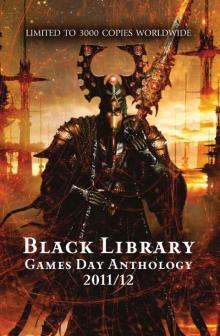 Death of a Silversmith
Death of a Silversmith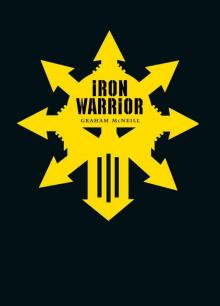 Iron Warrior
Iron Warrior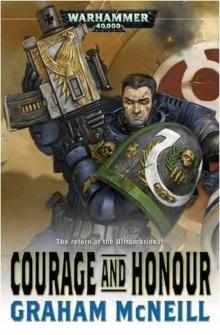 Courage and Honour w4u-5
Courage and Honour w4u-5![[Ultramarines 6] Chapters Due - Graham McNeill Read online](http://i1.bookreadfree.com/i1/03/30/[ultramarines_6]_chapters_due_-_graham_mcneill_preview.jpg) [Ultramarines 6] Chapters Due - Graham McNeill
[Ultramarines 6] Chapters Due - Graham McNeill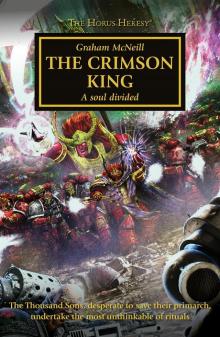 The Crimson King
The Crimson King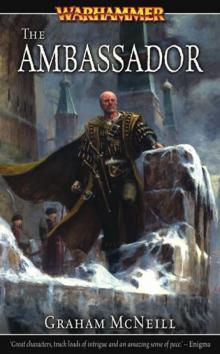 1 the ambassador
1 the ambassador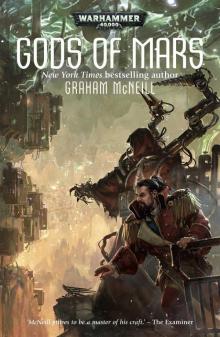 Gods of Mars
Gods of Mars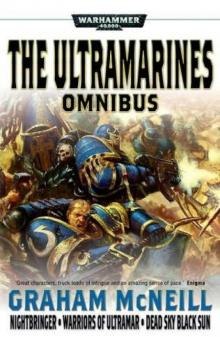 Ultramarines Omnibus (warhammer 40000: ultramarines)
Ultramarines Omnibus (warhammer 40000: ultramarines)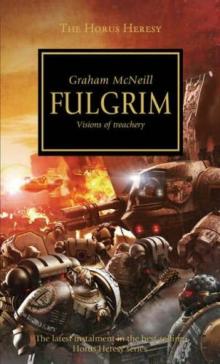 Fulgrim: Visions of Treachery whh-5
Fulgrim: Visions of Treachery whh-5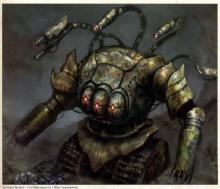 The Kaban Project (warhammer 40000: horus heresy)
The Kaban Project (warhammer 40000: horus heresy)![[Sigmar 02] - Empire Read online](http://i1.bookreadfree.com/i1/04/05/[sigmar_02]_-_empire_preview.jpg) [Sigmar 02] - Empire
[Sigmar 02] - Empire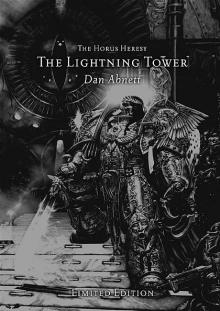 The Lightning Tower & The Dark King
The Lightning Tower & The Dark King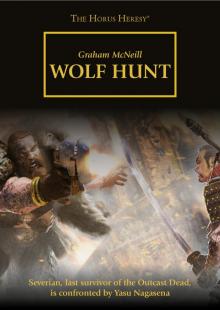 Wolf Hunt
Wolf Hunt Killing Ground w4u-4
Killing Ground w4u-4![Warhammer - [The Ambassador Chronicles 02] - Ursun's Teeth Read online](http://i1.bookreadfree.com/i1/04/05/warhammer_-_[the_ambassador_chronicles_02]_-_ursuns_teeth_preview.jpg) Warhammer - [The Ambassador Chronicles 02] - Ursun's Teeth
Warhammer - [The Ambassador Chronicles 02] - Ursun's Teeth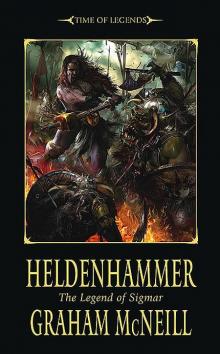 01 - Heldenhammer
01 - Heldenhammer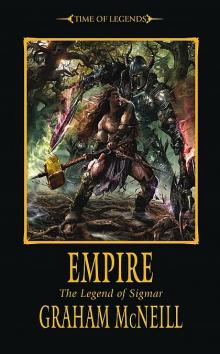 02 - Empire
02 - Empire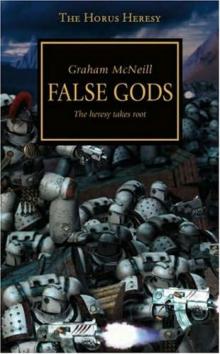 False Gods whh-2
False Gods whh-2